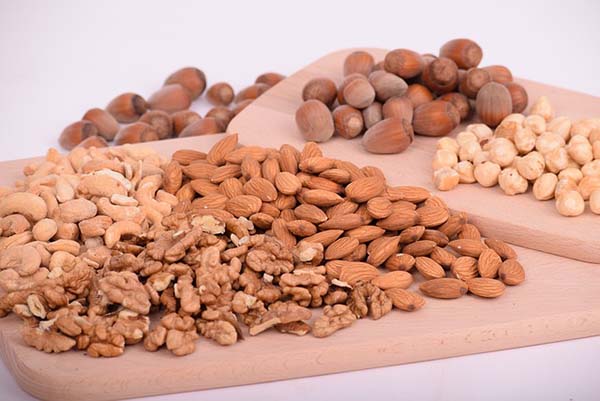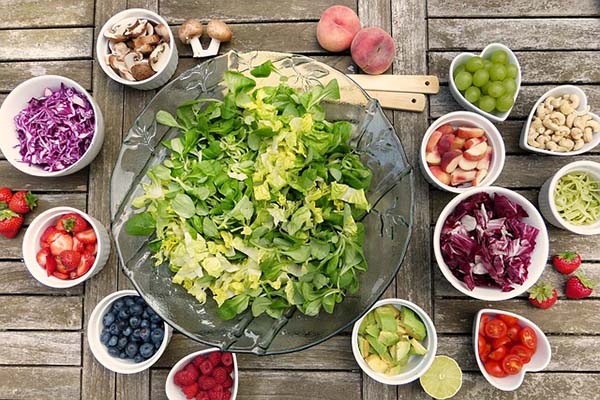Learn how a plant-based diet supports endurance training with high-protein foods like tofu, beans, and lentils. Get tips on meal planning, protein sources, and how plant-based nutrition aids recovery and boosts performance.
When I first went vegetarian, I thought I was being pretty healthy just by cutting out meat. But wow, did I underestimate the need for protein. Back then, I was probably eating around 50 grams of protein a day, tops. I lost weight, sure, but I also lost muscle. Not quite the effect I was going for, especially with endurance training goals in the mix. So, over time, I started upping my protein intake and learned to be intentional about my food choices. Now I aim for around 120 grams of protein daily, and it’s made a world of difference. Here’s what I’ve learned and how I keep my plant-based diet working for my endurance training needs.
Why Carbs Matter So Much in Endurance Training
Carbs are the secret weapon for endurance training, plain and simple. Sure, protein’s important, but without carbs, you’re just running on empty. Carbs break down into glucose, which fuels your muscles, and when you’re hitting those long runs, rides, or swims, they’re the energy source your body’s counting on. I know from experience, if you’re not loading up properly, you’ll feel it. Ever felt like you’ve hit a wall halfway through a workout? That’s what low glycogen feels like.
Carbs are also key to recovery. When you push hard, you burn through your glycogen stores fast. Without refueling, you risk starting the next session with less energy, which can lead to exhaustion, slower recovery, and sometimes even injury. So after a tough workout, reach for something like oats, rice, bananas, or whole-grain bread. These foods help restore glycogen and get you ready for the next round.
Endurance athletes generally aim to get about 50-60% of their daily calories from carbs. It sounds like a lot, but when you’re training, you need that steady fuel. I balance between complex carbs, like oats or brown rice that give you longer-lasting energy, and simple carbs like fruit or energy gels for quick boosts during or after a workout.
The bottom line? Carbs are essential. Skipping them isn’t an option if you want to keep your endurance up and avoid burning out halfway through. And believe me, when you’re deep into a workout, you’ll be glad you loaded up on carbs!

Why Protein Matters for Endurance Athletes
If you’re putting in the miles or the hours, your muscles need protein to recover, rebuild, and get stronger. Endurance training can actually break down muscle if you’re not eating enough of the right stuff. From my experience, having adequate protein doesn’t just help my muscles recover; it also helps me feel more stable energy-wise throughout the day.
Most endurance athletes aim for somewhere between 1.2 and 2 grams of protein per kilogram of body weight. That’s where the 120 grams comes in for me. It sounds like a lot, and it can be if you’re new to plant-based eating, but once you know which foods to reach for, it’s totally manageable.
My Protein Staples: High-Protein, Plant-Based Foods I Rely On
I’ve been vegetarian for over a decade now, and I’ve tried just about every high-protein plant-based food there is. Here are my favorites, the ones that keep me going, help with muscle recovery, and actually taste good.
- Tofu
My first love in the plant-protein world. Tofu is versatile, packs around 15-20 grams of protein per 200 grams, and works with almost any dish. I’ll stir-fry it, bake it, throw it in a wrap. A bit of soy sauce and chili, and it’s perfect. - Tempeh
When I need something with a bit more texture, tempeh is my go-to. It’s also a fermented food, so it’s great for digestion. Tempeh brings around 15 grams of protein per 100 grams and works well with marinades. Just chop it up, let it soak, and add to salads, grain bowls, or on its own. - Vegan Protein Shakes
I used to be hesitant about protein powders, they felt unnecessary. But now, especially on busy days, I rely on a scoop of pea or brown rice protein powder. It’s a quick 20 grams in one go. I blend it with almond milk, a banana, and maybe a handful of spinach. - Lentils and Beans
Lentils especially. They pack about 18 grams of protein per cup, and you can make anything with them, soup, stew, veggie patties. Black beans, chickpeas, and kidney beans are also solid options, each with around 15 grams per cup. - Edamame
My snack hero. One cup has around 17 grams of protein. I usually toss some with a pinch of salt for a snack or add it to bowls and salads. - Quinoa
This “grain” is actually a seed, and it’s one of the few plant foods that’s a complete protein (meaning it has all nine essential amino acids). One cup gives me 8 grams of protein and makes a filling base for a meal. - Nuts and Seeds
These are lifesavers on training days. Hemp seeds, in particular, give me 10 grams of protein in 3 tablespoons. I throw them on my oats, in smoothies, or on salads. Almonds, chia seeds, and pumpkin seeds are other great options. - Leafy Greens and Veggies
No, they’re not protein powerhouses, but they do add up. I’ll load up on broccoli, Brussels sprouts, and spinach. Every bit counts, especially when I’m trying to hit that 120-gram mark.

Building a Balanced Plant-Based Day for Endurance Training
It took a while to find a routine that works, but here’s a basic day that keeps me fueled:
- Breakfast: Smoothie with vegan protein powder, almond milk, frozen berries, spinach, and chia seeds.
- Lunch: Salad with tofu, quinoa, black beans, edamame, mixed greens, and a tahini dressing.
- Snack: Apple with a handful of almonds or roasted edamame.
- Dinner: Stir-fried tempeh with mixed vegetables (broccoli, bell peppers, snap peas) over brown rice.
- Post-Workout Snack: A quick protein shake with almond milk and a scoop of pea protein.
Each meal includes a mix of protein, complex carbs, and fats, which keeps my energy steady and my recovery strong. I’ve found that consistency with these meals keeps me on track without obsessing over every gram.
The Learning Curve: Challenges and Lessons on a Plant-Based Diet
Starting a plant-based diet as an endurance athlete came with its fair share of challenges. When I first transitioned, I didn’t pay much attention to protein, which led to some muscle loss. Now, I’m more intentional, and I’m seeing the benefits. Here are a few things I’ve picked up along the way:
- Planning is Essential
When you’re aiming for specific nutrition goals, winging it doesn’t work. I try to plan my meals or at least have protein-rich foods on hand, like tofu, tempeh, and vegan protein bars. - Snacks Are Your Friend
I always have some almonds or protein bars with me. Especially after a workout, it’s nice to have something quick to grab that’s going to support recovery. - Iron and B12 Are Key
Iron and B12 are important for endurance athletes, but they can be tricky to get on a plant-based diet. I make sure to eat iron-rich foods like lentils and spinach and take a B12 supplement regularly. This helps prevent fatigue and keeps my energy levels steady.
The Benefits of a Plant-Based Diet for Endurance Athletes
Since I started focusing on getting enough protein and making balanced meals, I’ve noticed some serious perks:
- Better Recovery: Plant foods are loaded with antioxidants, which help reduce inflammation. I feel less sore after long runs or bike sessions, and I bounce back faster.
- Consistent Energy: Because plant-based diets are high in fiber, I stay full longer and avoid energy crashes.
- Digestion Improvements: No more bloating or heavy feelings after meals. Whole foods like veggies, grains, and legumes are easy on the stomach, which makes a difference during training.
- Immune Support: Plant foods come packed with vitamins and minerals that help keep the immune system strong, something that’s critical when training ramps up.

Final Thoughts
Going plant-based as an endurance athlete isn’t always easy, but it’s totally worth it. With some planning and a few protein-rich staples, hitting daily goals becomes second nature. For me, the key has been consistency, building a diet that fits my lifestyle without needing constant adjustments. And while I’m still learning along the way, I feel stronger, faster, and more resilient than ever.
If you’re considering a plant-based diet for endurance training, know that it’s possible to thrive on it. Focus on nutrient-dense foods, add in plenty of protein sources, and listen to what your body needs. Endurance training demands a lot, but with the right fuel, you’ll be ready for anything.





